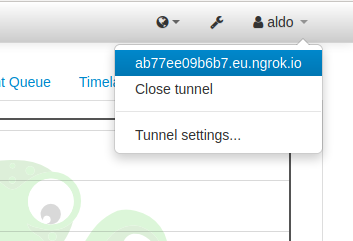I'm working on a plugin to create a simple but secure alternative to port forwarding.
Forwarding a port and setting up a dynamic dns record unfortunately remains a popular way to make an OctoPrint instance accessible through the internet. This is very insecure (especially when not using HTTPS with a proper certificate), and requires changes to the local network (static IP for the OctoPrint instance, configuration changes to the router). The truly safe way to access an OctoPrint instance is to use a VPN, but this is hard to set up and properly configure.
The OctoPrint Ngrok Tunnel plugin sets up a secure tunnel to your OctoPrint instance via the ngrok service. The tunnel is encrypted with SSL and proper certificates (even if your OctoPrint instance is not accessible via HTTPS locally), and is further protected with Basic Authentication (username and password) out of the box.
There is no configuration of the local network necessary, and there are no ports to open or forward. No certificates to set up. Just full access to your OctoPrint instance, including both the web interface and the API, from anywhere in the world. With the standard OctoPi confguration, you even get a working webcam stream remotely (if your home internet connection can keep up with the demands of streaming mjpeg).
You only need to sign up for a free account at ngrok.com. There is one caveat: with a free account, you get assigned a random subdomain of ngrok.com, and this subdomain changes each time OctoPrint gets restarted. The tunnel address is shown within the OctoPrint interface, but it can also be looked up in the ngrok service dashboard. With a paid ngrok account, you can configure a static subdomain to use. A paid plan gives you additional features, such as creating an IP whitelist to limit who can access the tunnel.
Installing the ngrok software, configuring and starting the tunnel is all done by the plugin. Before I publish an official release, I would like to get some feedback "from the field". The current prerelease version of the plugin can be found here:
It can be installed via the plugin manager by entering the following URL:
https://github.com/fieldOfView/OctoPrint-ngrok/archive/master.zip

